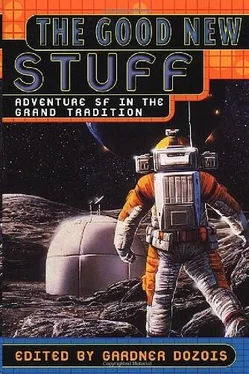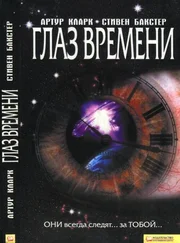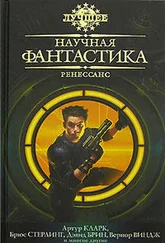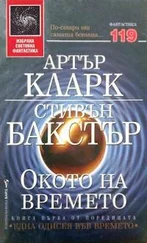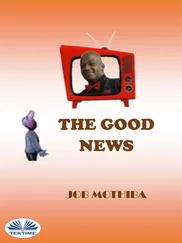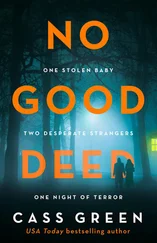Стивен Бакстер - The Good New Stuff
Здесь есть возможность читать онлайн «Стивен Бакстер - The Good New Stuff» весь текст электронной книги совершенно бесплатно (целиком полную версию без сокращений). В некоторых случаях можно слушать аудио, скачать через торрент в формате fb2 и присутствует краткое содержание. Год выпуска: 2002, ISBN: 2002, Издательство: St. Martin's Griffin, Жанр: Фантастика и фэнтези, на английском языке. Описание произведения, (предисловие) а так же отзывы посетителей доступны на портале библиотеки ЛибКат.
- Название:The Good New Stuff
- Автор:
- Издательство:St. Martin's Griffin
- Жанр:
- Год:2002
- ISBN:0-312-26456-9
- Рейтинг книги:3 / 5. Голосов: 1
-
Избранное:Добавить в избранное
- Отзывы:
-
Ваша оценка:
- 60
- 1
- 2
- 3
- 4
- 5
The Good New Stuff: краткое содержание, описание и аннотация
Предлагаем к чтению аннотацию, описание, краткое содержание или предисловие (зависит от того, что написал сам автор книги «The Good New Stuff»). Если вы не нашли необходимую информацию о книге — напишите в комментариях, мы постараемся отыскать её.
The Good New Stuff — читать онлайн бесплатно полную книгу (весь текст) целиком
Ниже представлен текст книги, разбитый по страницам. Система сохранения места последней прочитанной страницы, позволяет с удобством читать онлайн бесплатно книгу «The Good New Stuff», без необходимости каждый раз заново искать на чём Вы остановились. Поставьте закладку, и сможете в любой момент перейти на страницу, на которой закончили чтение.
Интервал:
Закладка:
Then the process seemed to reverse. The spume of light blossoming from the cliff curved in on itself, growing in brightness as it was compressed back to its point of origin.
Lady Mac 's crew were straining under the five-gee acceleration of the starship's flight. The inertial guidance systems started to flash priority warnings into Marcus's neural nanonics.
"We're going back," he datavised. Five gees made talking too difficult. "Jesus, five gees and it's still pulling us in." The external sensor suite showed him the contracting fireball, its luminosity surging towards violet. Large sections of the cliff were flaking free and plummeting into the conflagration. Fissures like black lightning bolts split open right across the rock.
He ordered the flight computer to power up the nodes and retract the last sensor clusters.
"Marcus, we can't jump," Katherine datavised, her face pummelled into frantic creases by the acceleration. "It's a gravitonic emission. Don't."
"Have some faith in the old girl." He initiated the jump.
An event horizon eclipsed the Lady Macbeth 's fuselage.
Behind her, the wormhole at the heart of the newborn micro-star gradually collapsed, pulling in its gravitational field as it went. Soon there was nothing left but an expanding cloud of dark snowdust embers.
They were three jumps away from Tranquillity when Katherine ventured into Marcus's cabin.
Lady Mac was accelerating at a tenth of a gee towards her next jump coordinate, holding him lightly in one of the large blackfoam sculpture chairs. It was the first time she'd ever really noticed his age.
"I came to say sorry," she said. "I shouldn't have doubted."
He waved limply.
"Lady Mac was built for combat, her nodes are powerful enough to jump us out of some gravity fields. Not that I had a lot of choice. Still, we only reduced three nodes to slag, plus the one dear old Jorge damaged."
"She's a hell of ship, and you're the perfect captain for her. I'll keep flying with you, Marcus."
"Thanks. But I'm not sure what I'm going to do after we dock. Replacing three nodes will cost a fortune. I'll be in debt to the banks again."
She pointed at the row of transparent bubbles which all held identical antique electronic circuit boards. "You can always sell some more Apollo command module guidance computers."
"I think that scam's just about run its course. Don't worry, when we get back to Tranquillity I know a captain who'll buy them from me. At least that way I'll be able to settle the flight pay I owe all of you."
"For Heaven's sake, Marcus, the whole astronautics industry is in debt to the banks. I swear I never could understand the economics behind starflight."
He closed his eyes, a wry smile quirking his lips. "We very nearly solved human economics for good, didn't we?"
"Yeah. Very nearly."
"The wormhole would have let me change the past. Their technology was going to change the future. We could have rebuilt our entire history."
"I don't think that's a very good idea. What about the grandfather paradox for a start? How come you didn't warn us about Jorge as soon as you emerged from the wormhole?"
"Scared, I guess. I don't know nearly enough about quantum temporal displacement theory to start risking paradoxes. I'm not even sure I'm the Marcus Calvert that brought this particular Lady Macbeth to the xenoc wreck. Suppose you really can't travel between times, only parallel realities? That would mean I didn't escape into the past, I just shifted sideways."
"You look and sound pretty familiar to me."
"So do you. But is my crew still stuck back at their version of the wreck waiting for me to deal with Jorge?"
"Stop it," she said softly. "You're Marcus Calvert, and you're back where you belong, flying Lady Mac."
"Yeah, sure."
"The xenocs wouldn't have built the wormhole unless they were sure it would help them get home, their true home. They were smart people."
"And no mistake."
"I wonder where they did come from?"
"We'll never know, now." Marcus lifted his head, some of the old humor emerging through his melancholia. "But I hope they got back safe."
Mary Rosenblum
THE EYE OF GOD
One of the most popular and prolific of the new writers of the nineties, Mary Rosenblum made her first sale, to Asimov's Science Fiction, in 1990, and has since become a mainstay of that magazine, and one of its most frequent contributors, with more than twenty-five sales there to her credit. She has also sold to The Magazine of Fantasy & Science Fiction, Science Fiction Age, Pulphouse, New Legends, and elsewhere.
Rosenblum has produced some of the most colorful, exciting, and emotionally powerful stories of the nineties, earning her a large and devoted following of readers. Her linked series of "Drylands" stories have proved to be one of Asimov's most popular series, but she has also published memorable stories such as "The Stone Garden," "Synthesis," "Flight," "California Dreamer," "Casting at Pegasus," "Entrada," "Rat," "The Centaur Garden," and many, many others. Her novella "Gas Fish" won the Asimov's Readers Award Poll in 1996, and was a finalist for that year's Nebula Award. Her first novel, The Drylands, appeared in 1993 to wide critical acclaim, winning the prestigious Compton Crook Award for Best First Novel of the year; it was followed in short order by her second novel, Chimera, and her third, The Stone Garden. Her most recent book was her first short-story collection, Synthesis and Other Stories, widely hailed by critics as one of the best collections of 1996. She recently sold a trilogy of mystery novels under a pseudonym, and has just finished the first book in the series, The Devil's Trumpet.
Most of Rosenblum's work has a strong adventure element, but only recently has she started taking us away from future Earths of one sort or another and out among the stars, in stories such as "Gas Fish" and the exciting and exotic adventure that follows, "The Eye of God." In it she takes us to a remote and hostile planet where human and alien antagonists must fight a battle of wits and will and nerve with the lives of the contestants literally hanging by a thread (over a thousand-foot drop!), with the destiny of the human race and the redemption of an individual's soul at stake….
Rosenblum is another young and prolific writer who works very hard and with great discipline, and if she doesn't vanish into the mystery world completely to become the new Agatha Christie, it will be very interesting to see what directions she moves in and what she produces in the years to come; whatever it is, I'm sure it will be as vivid and compulsively readable as the rest of her work has been. A graduate of Clarion West, Mary Rosenblum lives with her family in Portland, Oregon.
The coral-reeds' agitation alerted her. Etienne came out onto the porch of her cottage to watch three Rethe wade through the thick blue-green stems. From this distance, they could have been three tall women, as human as herself. The coral-reeds stirred at their passage, the anxious rasp of their stems like distant whispering— words at the bare edge of comprehension.
She had never expected to see Rethe here. Etienne swallowed, fighting back memories that she had banished years ago. For a moment she entertained the hope that this visit was a mistake, or some kind of minor bureaucratic ritual.
She knew better.
Abruptly, she turned on her heel, and went inside to make tea. The Rethe would drink tea. That much at least humanity knew about them.
Etienne filled the teapot and arranged fruit-flavored gels on a plate. She had bought them in the shabby squatter village that had grown up around the Gate. Vat-grown in someone's back yard as masses of amorphous cells, the orange and ruby cubes bore no resemblance to apricot or cherries except taste. The plants on this world— or sessile animals that photosynthesized— did not bear fruit. She missed apples the most— crisp and tart after a frost. Vilya had bought her a miniature apple tree in a pot. For their balcony. It was a winesap— a true genetic antique. She had never gone back for it.
Читать дальшеИнтервал:
Закладка:
Похожие книги на «The Good New Stuff»
Представляем Вашему вниманию похожие книги на «The Good New Stuff» списком для выбора. Мы отобрали схожую по названию и смыслу литературу в надежде предоставить читателям больше вариантов отыскать новые, интересные, ещё непрочитанные произведения.
Обсуждение, отзывы о книге «The Good New Stuff» и просто собственные мнения читателей. Оставьте ваши комментарии, напишите, что Вы думаете о произведении, его смысле или главных героях. Укажите что конкретно понравилось, а что нет, и почему Вы так считаете.
